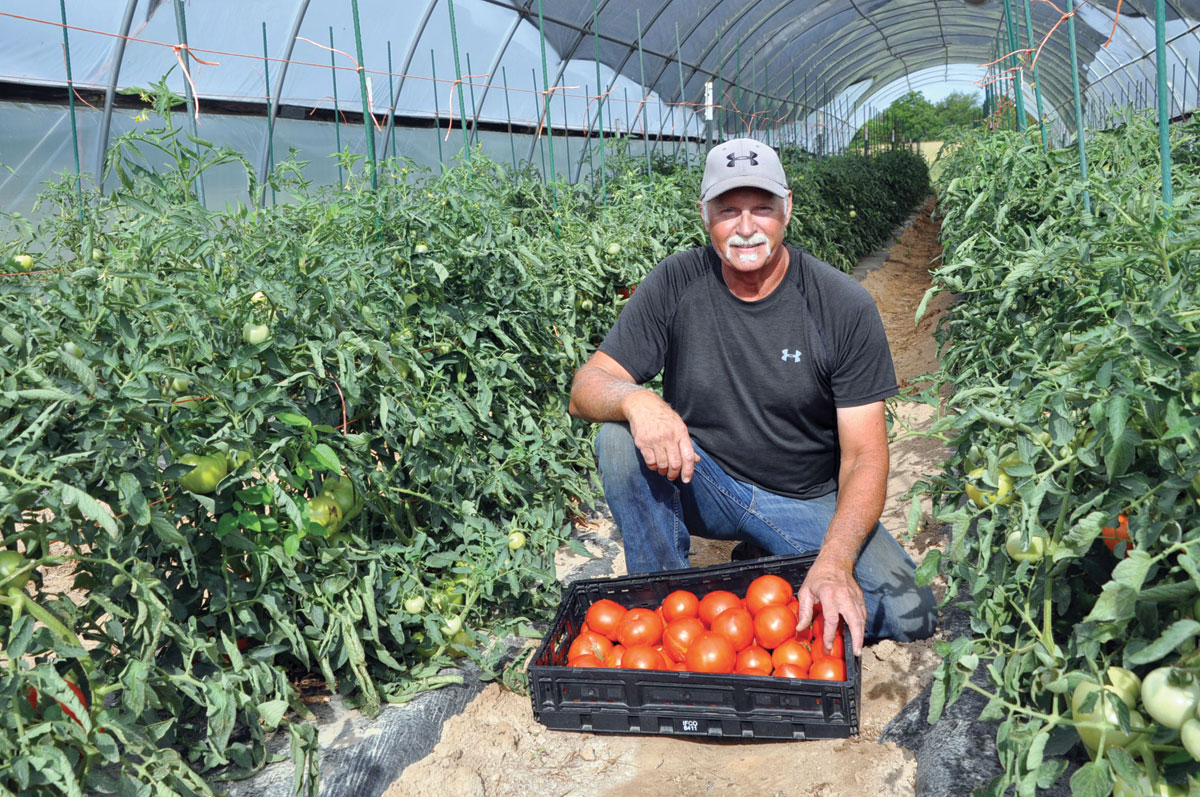 The harvesting of local forage is an important task in the management of all livestock. Glenn Obermann of Freistatt, Mo., takes it very seriously.
The harvesting of local forage is an important task in the management of all livestock. Glenn Obermann of Freistatt, Mo., takes it very seriously.
“We can raise good hay in southwest Missouri,” the Lawrence County, Mo., producer says.
After competing in the Ozark Empire Fair Hay Show for several years, and now with five years of competition at the state fair level as well, Glenn has championship hay skills and lessons learned and techniques shared from hay makers all over the state.
Making good hay didn’t happen overnight, for Glenn it’s been a lifetime of learning.
“I’ve been raising alfalfa since 1964, when I was 8 years old,” he said.
He recalls working with his father on the dairy farm he was raised on, and now farms himself – and the first crop of alfalfa they produced to increase winter milk production. Glenn is still growing alfalfa on 90 acres of the 300 acres he farms strictly for hay and crop production.
“I love growing hay,” shared Glenn.
The Obermanns maintained a diverse farm with dairy and swine before scaling down to hay and crop production.
“We have always grown all our own hay, but kept the dairy growing, and expanded to Grade-A in 1986. That’s what raised our children.”
They got out of the hog market in 1989.
“My wife and I decided to go into selling hay and selling grain after the kids got older and we sold the milk cows in 2010,” Glenn said. “It’s so much easier to raise quality alfalfa now without the cows.”
Making quality alfalfa hay takes good timing – and without the rigorous schedule required for dairy,
“It’s all about cutting and baling properly – but if it’s done right, nothing can touch it as far as quality,” Glenn explained.
Though perfect hay is the goal, there are a lot of factors that go into creating an award winning bale of hay.
“We don’t live in an ideal world,” Glenn warned. “It takes four good drying days to cure alfalfa correctly.”
When dealing with unpredictable weather, ideal conditions are often wished for more than they are received. During his summer cuttings, one of his favorite techniques is to, “bale with the dew on.” Glenn said. “The dew will keep the leaves on the stem from shattering. It has to be baled first thing in the morning, and it won’t mold as long as it was bone dry the day before.”
In a typical year, Glenn gets five cuttings off of his alfalfa fields. He rotates his crops and gets the most out of his alfalfa stand, “I can usually get seven or eight years out of my alfalfa. It’s all about soil fertility.” He keeps an eye on the soil and fertilizes in the spring and fall.
“Alfalfa likes potash, and a PH of 6 1/2 to 7,” Glenn said.
He also limes when necessary and no-tills everything. Glenn likes to seed alfalfa mid-May for good establishment, “Alfalfa is a hot-weather plant.”
In the last couple of years of an alfalfa crop, Glenn likes to cross-sow with orchard grass. After this rotation, Glenn will move to grain crops.
“I usually will grow corn for two years, then go to wheat or soybean for another two years, then back to alfalfa,” he said.
The Obermanns started entering hay at the State Fair in Sedalia in 2010, and since then have brought home the Grand Champion Alfalfa title three times and the Reserve Champion twice. In the grass category, they have been awarded Grand Champion once, and Reserve four times in those five years of competition.
Though Glenn has gotten a reputation for putting up premium hay with awards from the State Fair and Ozark Empire Fair, he sells hay of all quality to farmers in the area.
“We don’t just sell perfect top hay, we sell all hays, including orchard grass-alfalfa, and grass hay. We sell them in square and round bales,” explains Glenn.
He will also provide delivery and offers wheat-straw bales in squares or rounds as well. The Obermann family have been life-long residents of the area, and raised their children on the farm. Glenn, who was raised on the farm with three sisters, and Toni, who is a LPN at the Veterans Administration clinic in Mt. Vernon, have been married for 36 years.
“We have two daughters and two sons who have helped on the farm through the years from feeding calves, milking and tractor driving.”
The oldest is Melissa, who is married to Mark, and has three children in Ann Arbor, Mich. Kristen is married to Garach and they have two children in Columbia, Mo. Their two sons include, Brian, in Carthage, Mo., who continues to help his parents on the farm. He is married to Sarah and they have two children. The youngest is Jason who is studying to be a doctor at A.T. Still University in Kirksville, Mo.







